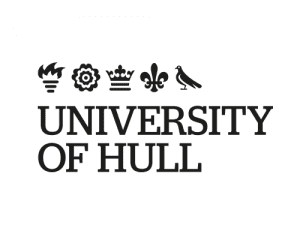The MA in Literature and Digital Culture, validated by the University of Hull, is studied part time and aims to develop participants’ understanding of the role of literature in digital culture, examining both the effects of new media technologies on literary form and content and the importance of literature in shaping the contemporary digital landscape. It seeks to provide a conceptual and theoretical basis for the analysis and critique of the cultural, social and economic dimensions of the 21st century information society, engaging in current debates around digital culture and how it is reflected and shaped by literature, films, games and social media.
Key Information
Year 1
Introduction to Digital Culture
This module examines some of the main theoretical approaches to digital culture that will underpin discussion and analysis on other modules. By reading literary fiction in dialogue with theoretical works, we will investigate the impact of digital networks and technologies on knowledge, power, labour, identity and community.
Digital Research Methods
This module aims to provide you with the skills to engage in digital research but crucially also focuses on the context and critical understanding of digital research methodologies, particularly around debates in the Digital Humanities. You’ll construct a personal learning network to keep you at the forefront of your research interests, and use some Digital Humanities tools to carry out quantitative analyses of texts and images.
Digital Textualities
The influence of digital culture on literature will be explored by investigating texts by contemporary writers such as Caryl Churchill, Haruki Murakami and Mark Haddon whose work has been embraced in theatre and performance. Key to our discussions will be the potential offered by the digitisation and mediatisation of text and performance as well as the dangers posed by electronic technologies to drama and theatre.
Year 2
Digital Aesthetics
Why is the idea of ‘cuteness’ so pervasive in digital culture? What has happened to irony and sincerity in contemporary literature? How does the concept of interpassivity relate to YouTube videos? How has binge-watching TV series changed the stories that are being told? These are the kinds of questions we will be discussing in this module that explores aesthetic concepts and categories that might help us to understand the role of the digital in artistic expression.
Dissertation
The dissertation module gives you the opportunity to refine your critical skills by applying them to an extended study of a topic of your own choosing. You’ll work closely with your supervisor to design and plan a rewarding project that engages with contemporary theoretical ideas and digital research methods.
Some examples of recent titles:
• The Emergence of the Ludic Aesthetic in Literature and Digital Culture
• Real Subsumption and Emotion in the Digital Economy
• How Digital Technology has Changed the Landscape of Popular Romantic Fiction
• Metamodernism: Agents of Disruption
All modules are subject to availability and this list may change at any time
Essays, Poster Presentations, Videographic Essays, Algorithmic Criticism, Learning Networks, Curation, Dissertation.
A 2.2 or higher in English or a related subject (Media, Cultural Studies, Philosophy, Film, etc.)
We welcome applications from people of any age who might not meet the standard entry criteria, but we would expect to see evidence of continuing academic and/or professional development and a capacity to pursue the course successfully
Graduates can progress to Ph.D study.
Financial Support
UK students can take out a tuition fee loan to cover the cost of their course and a maintenance loan to cover living costs.
We also have a range of other financial support available.
Course Fees
UK
£3945.00 per year
Additional Costs
Your Tuition fees cover the majority of costs associated with your programme (including registration, tuition and assessment.)
There may be some extra costs that you might need to make or choose to pay for example:
– Books (you’ll have access to books from your module reading lists in the HE library, but you may want to buy your own copies
– Printing and photocopying)
– Trips and enhancement opportunities
If your programme includes a work placement, you may be required to pay for a Basic or Enhanced Disclosure and Barring Service (DBS) check.
Enquire about this course
To find out more and apply for this course, please contact us via the telephone number below.
